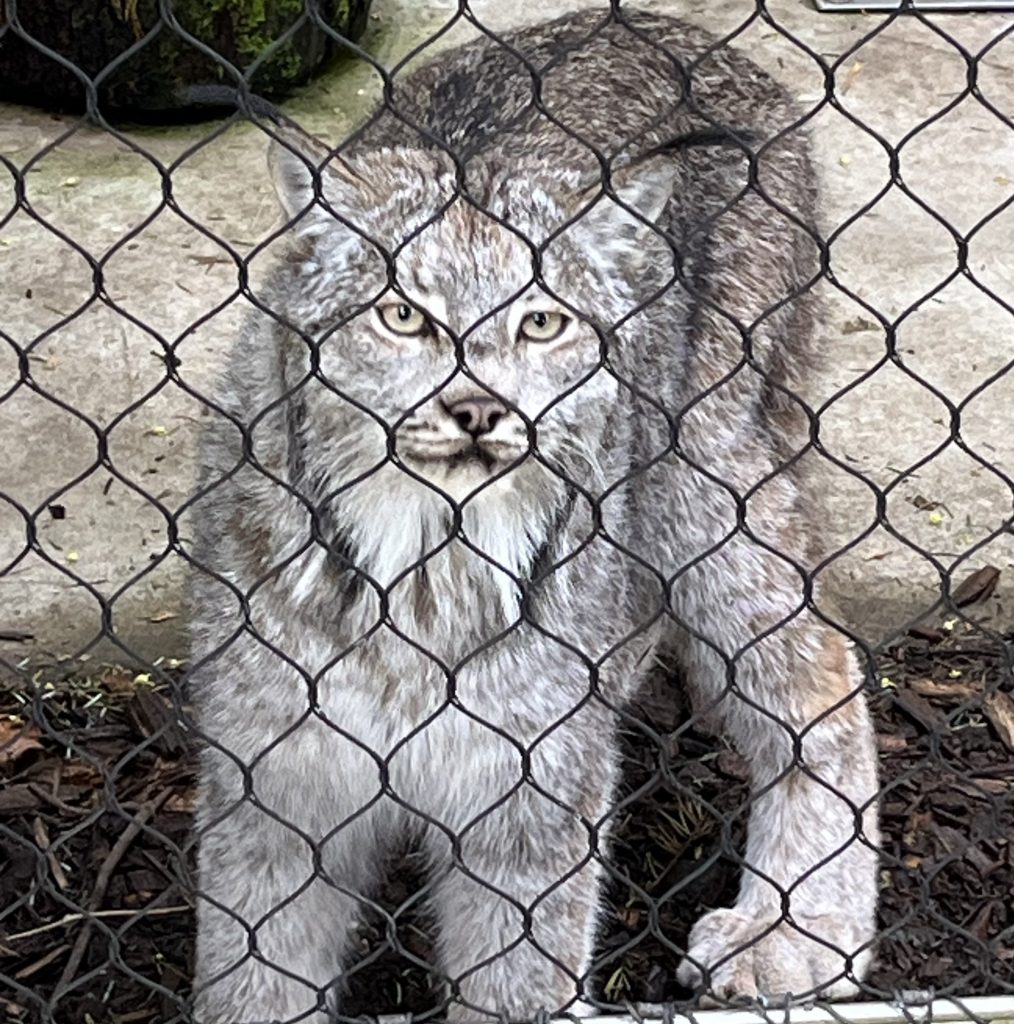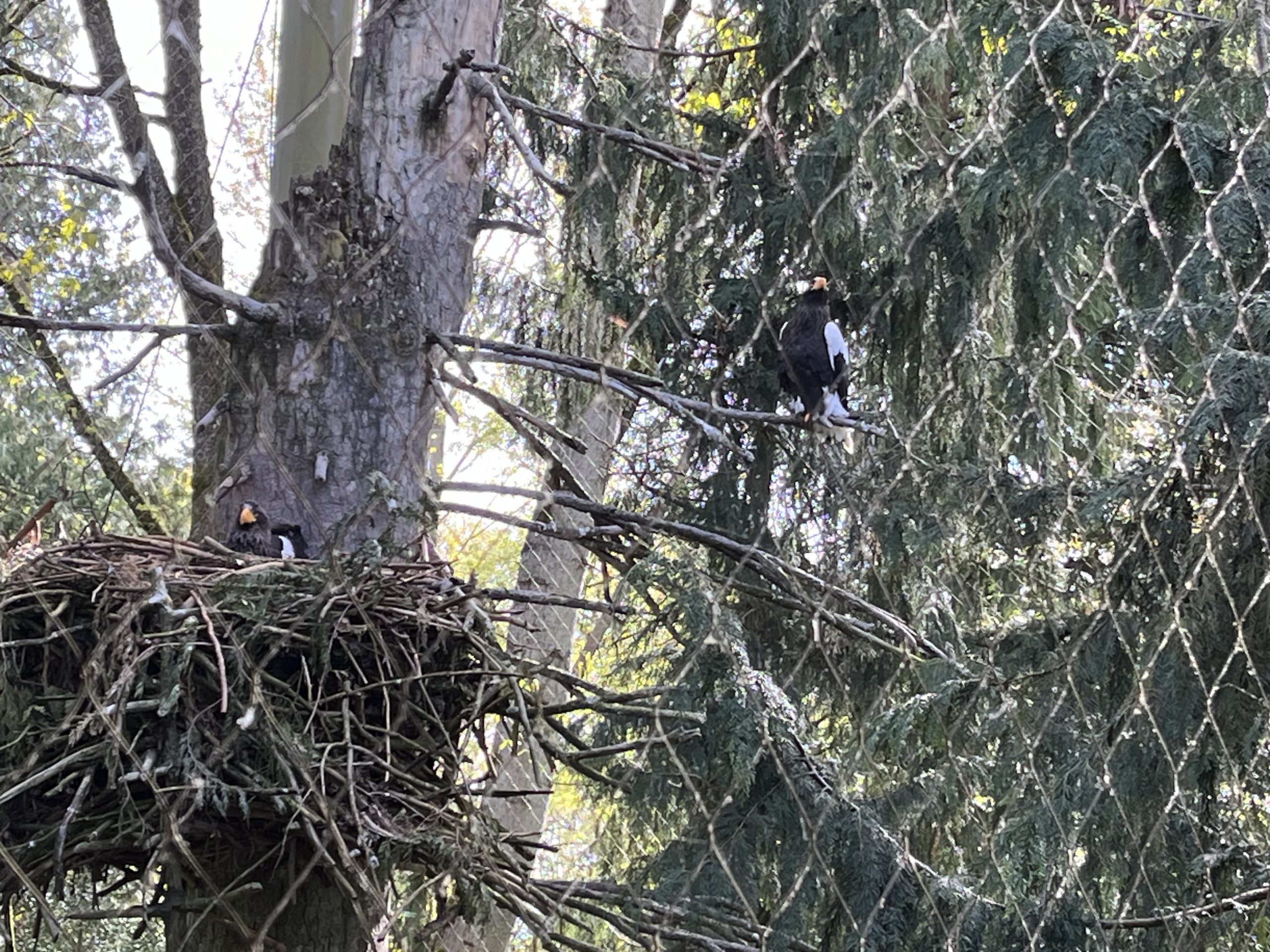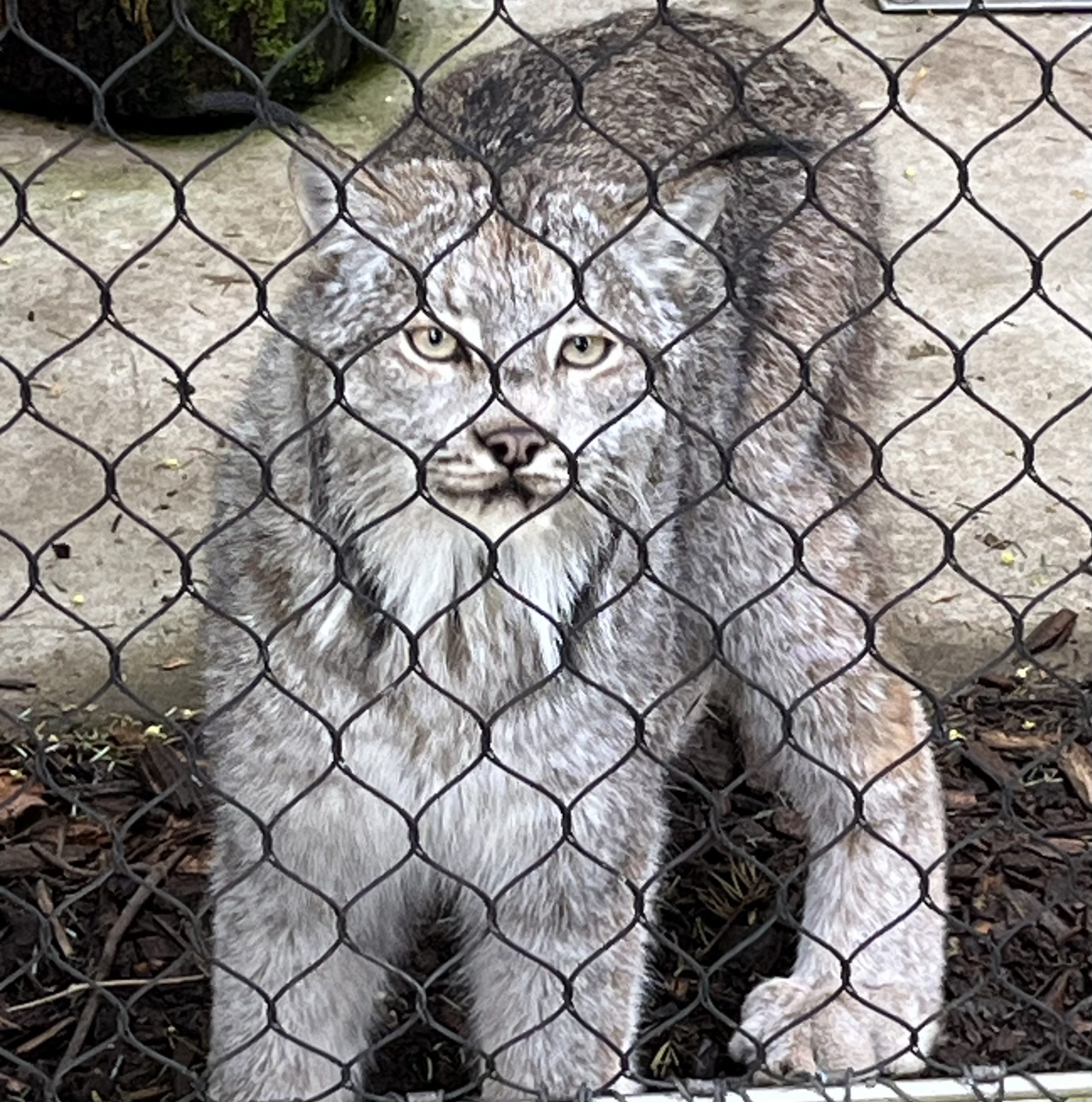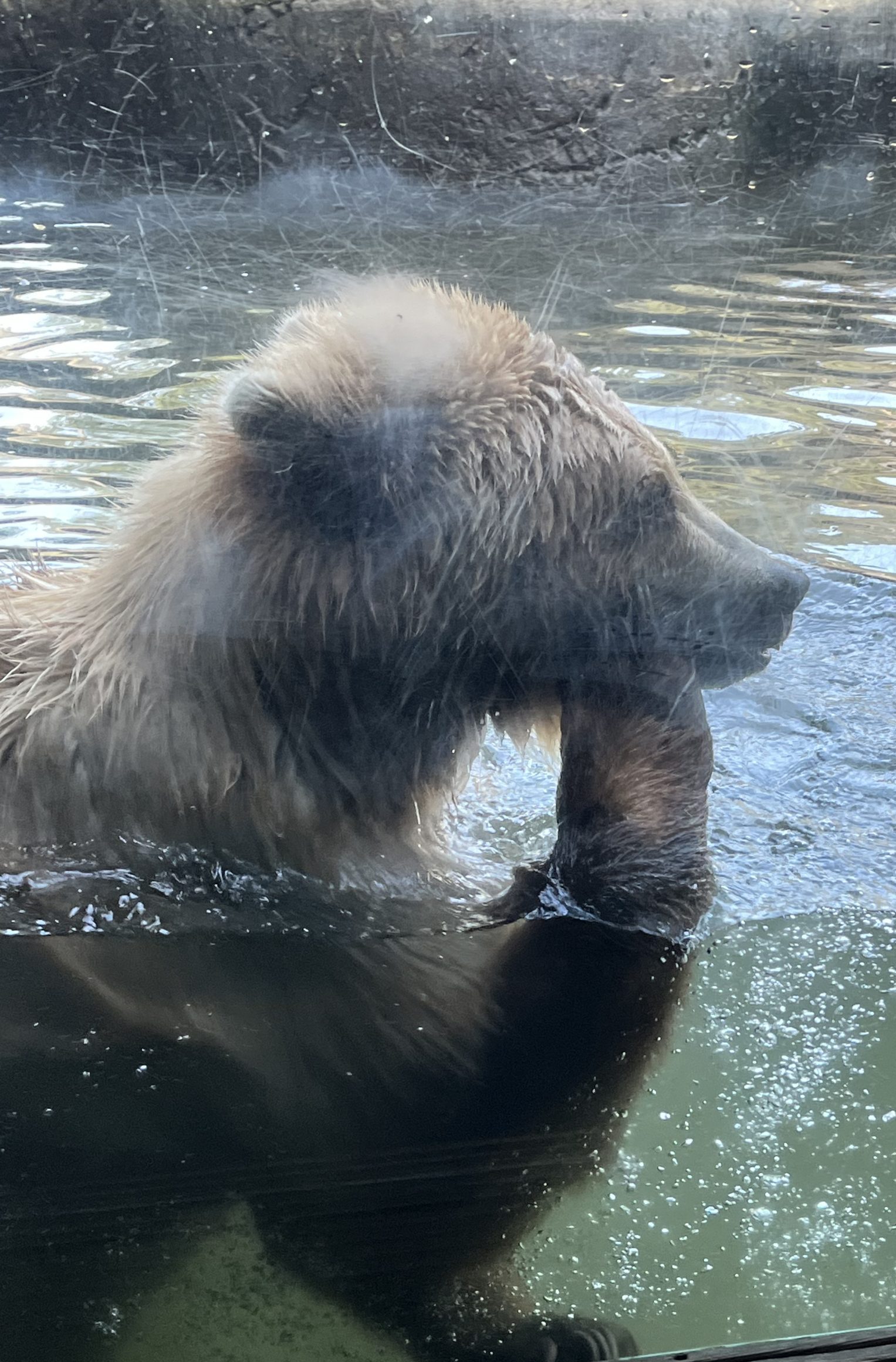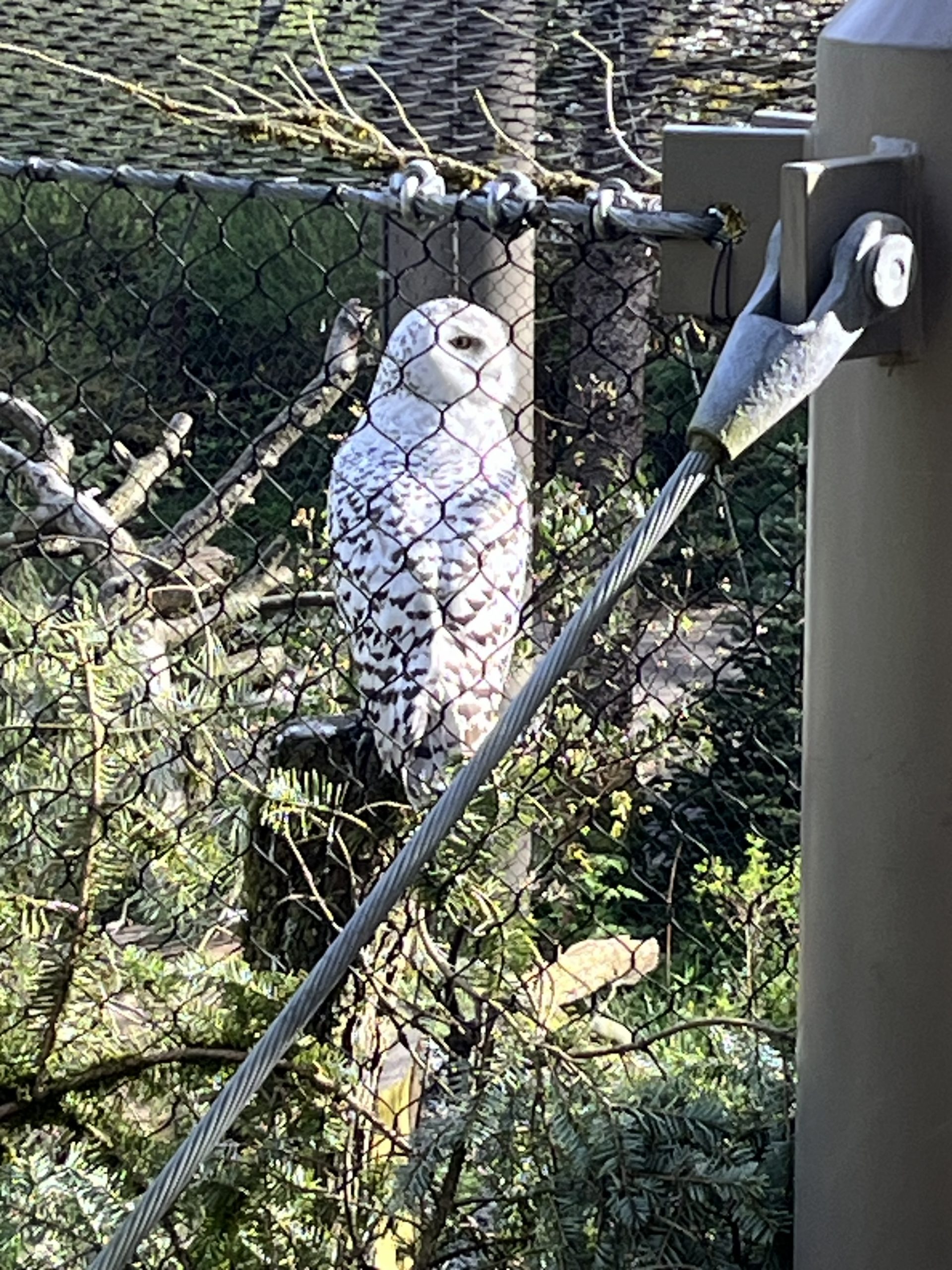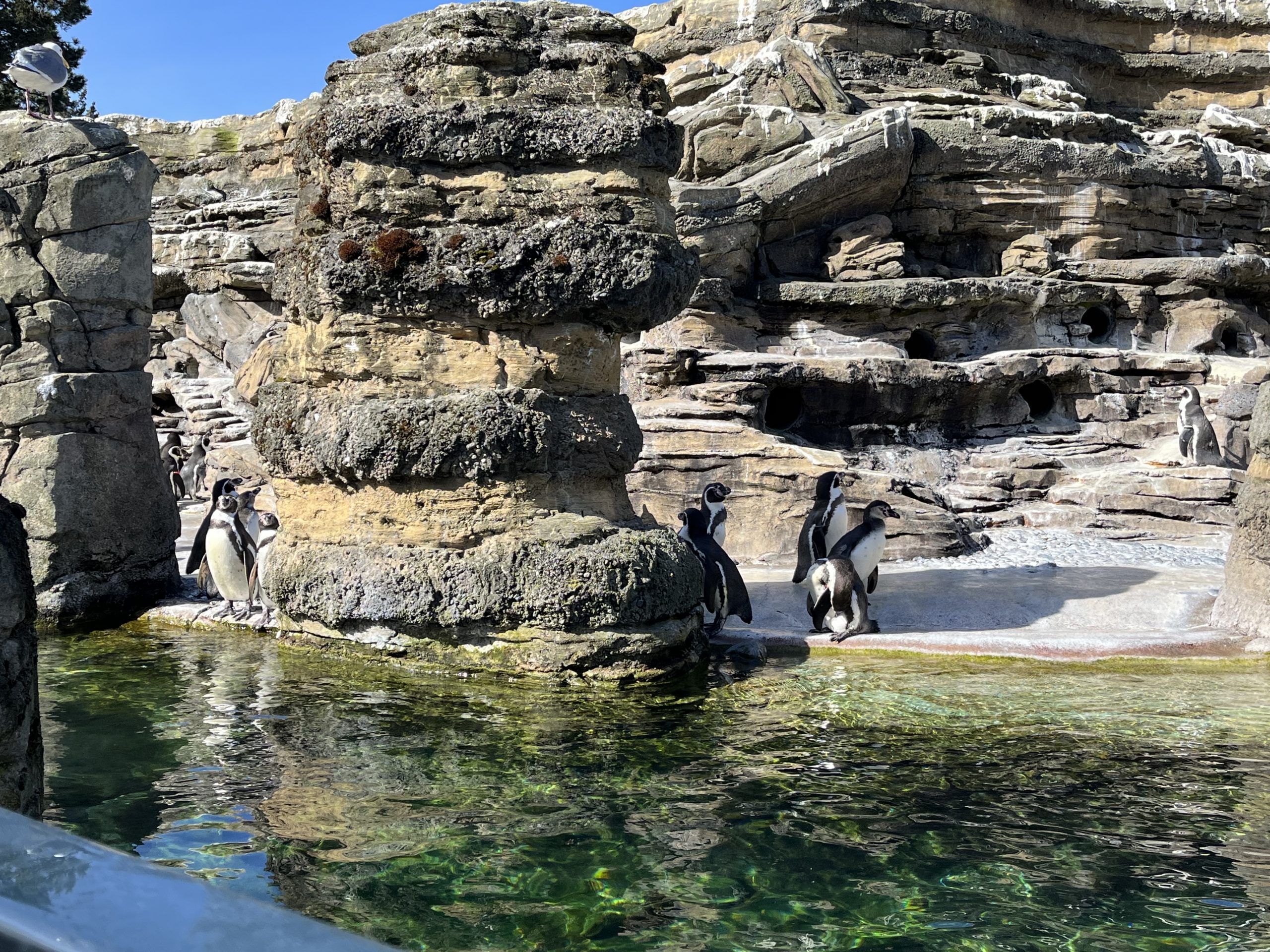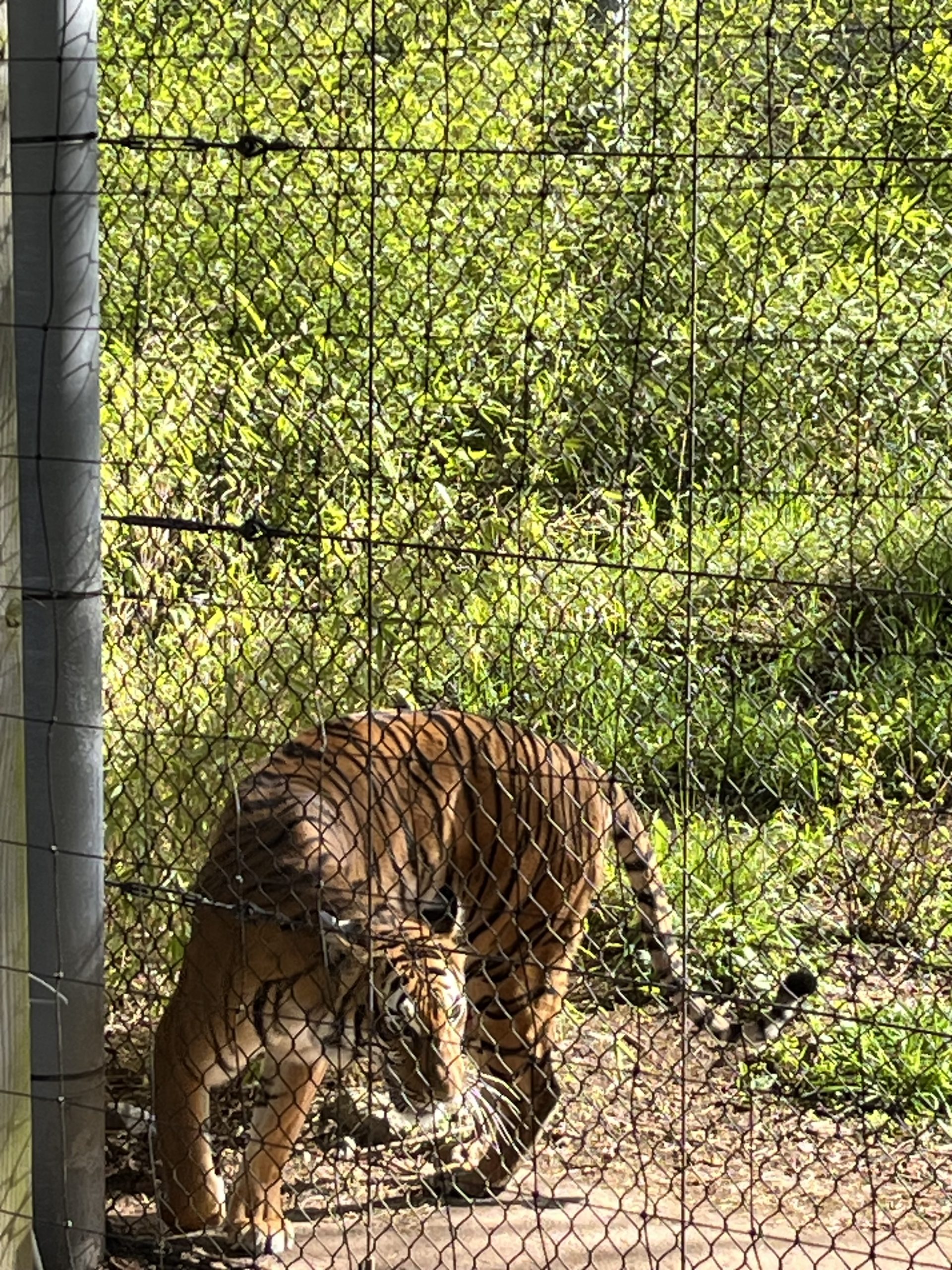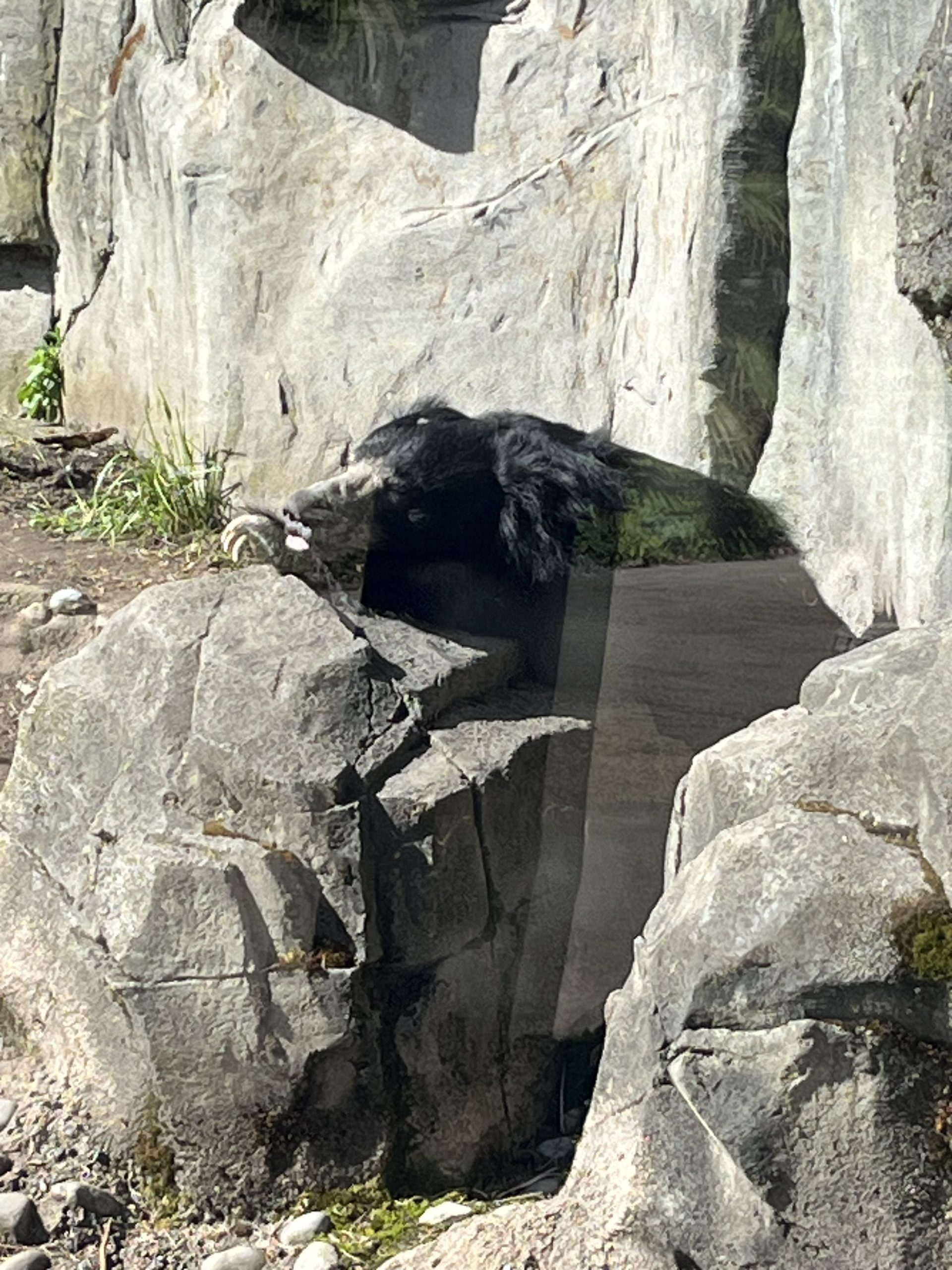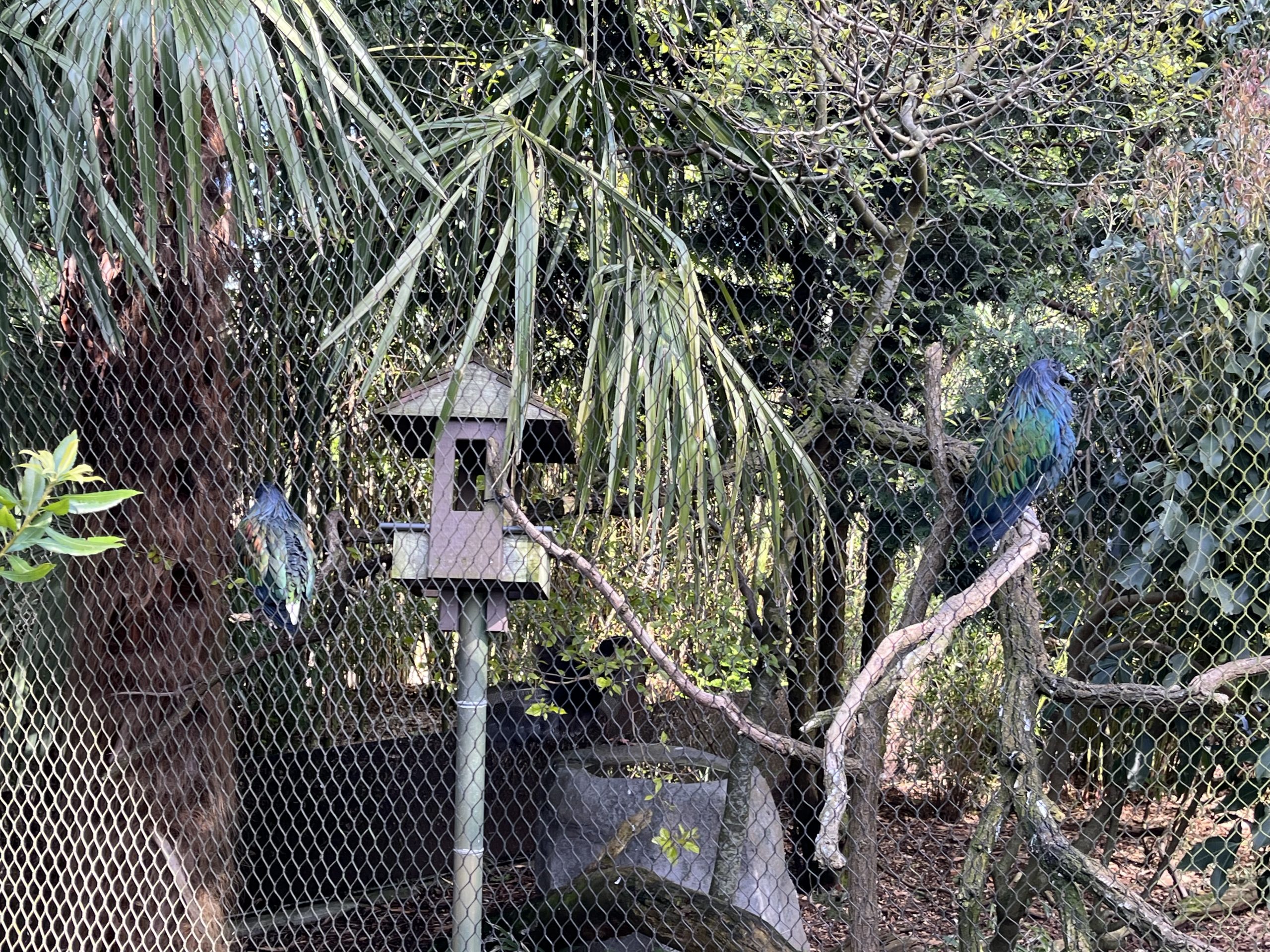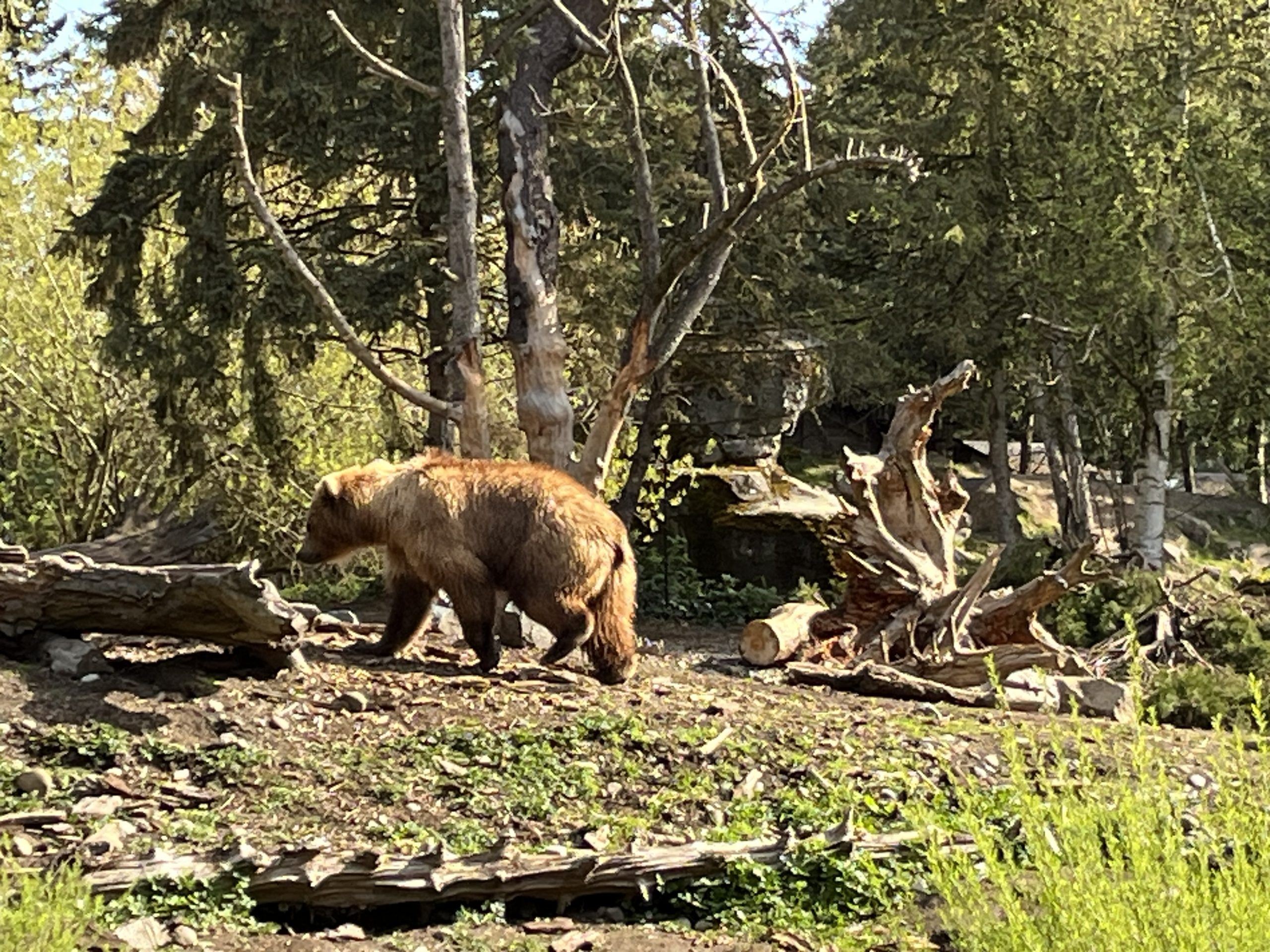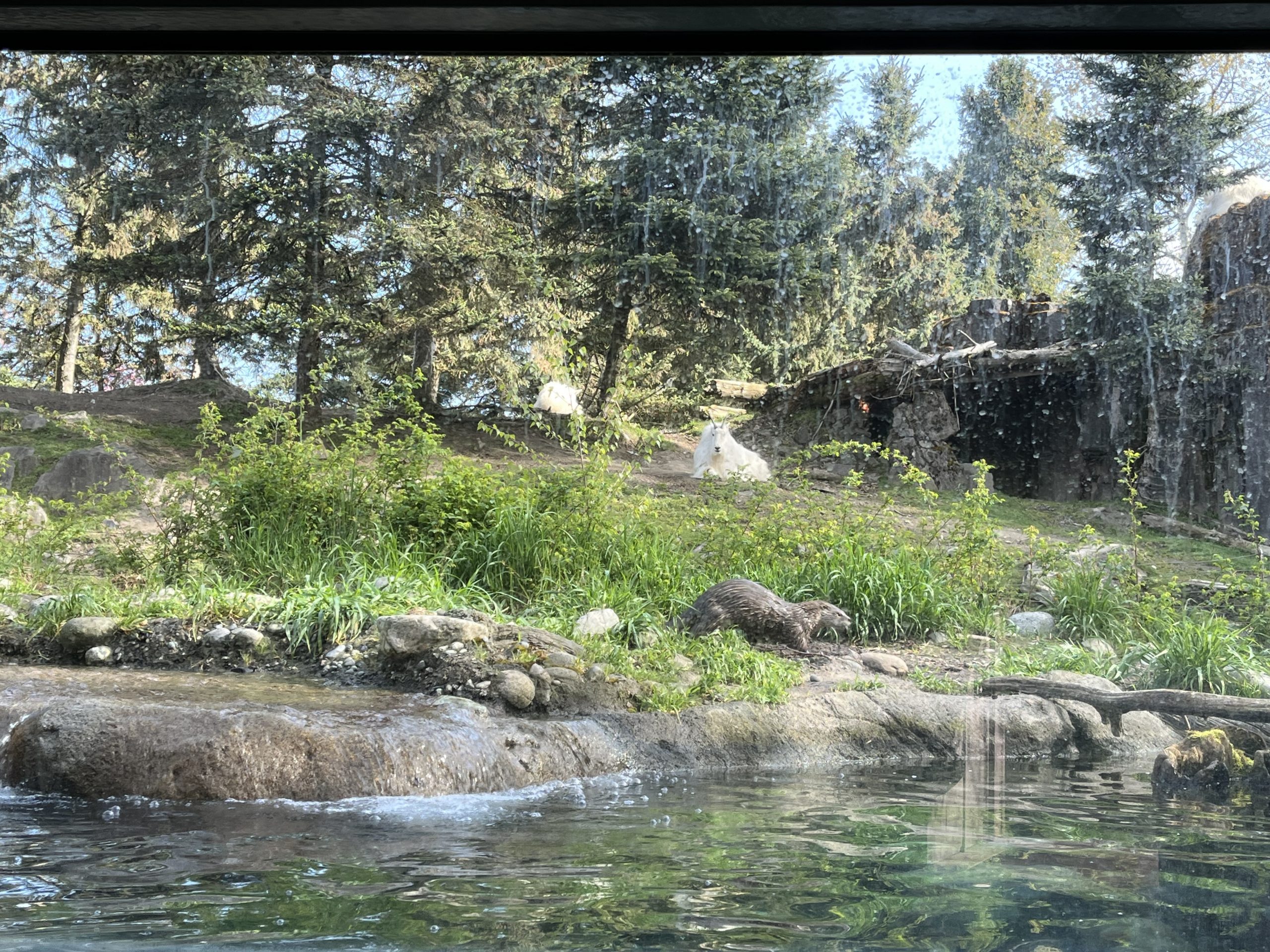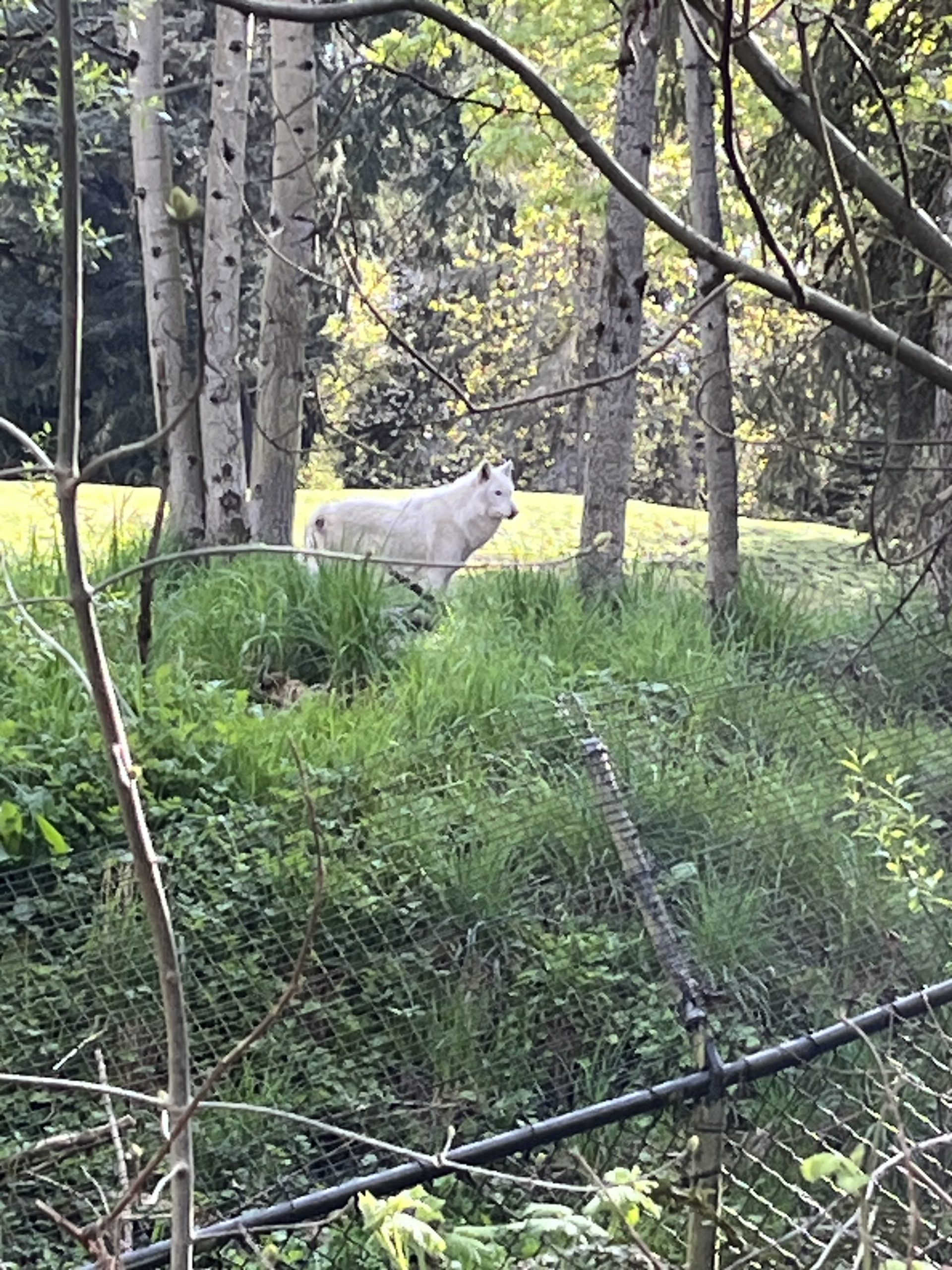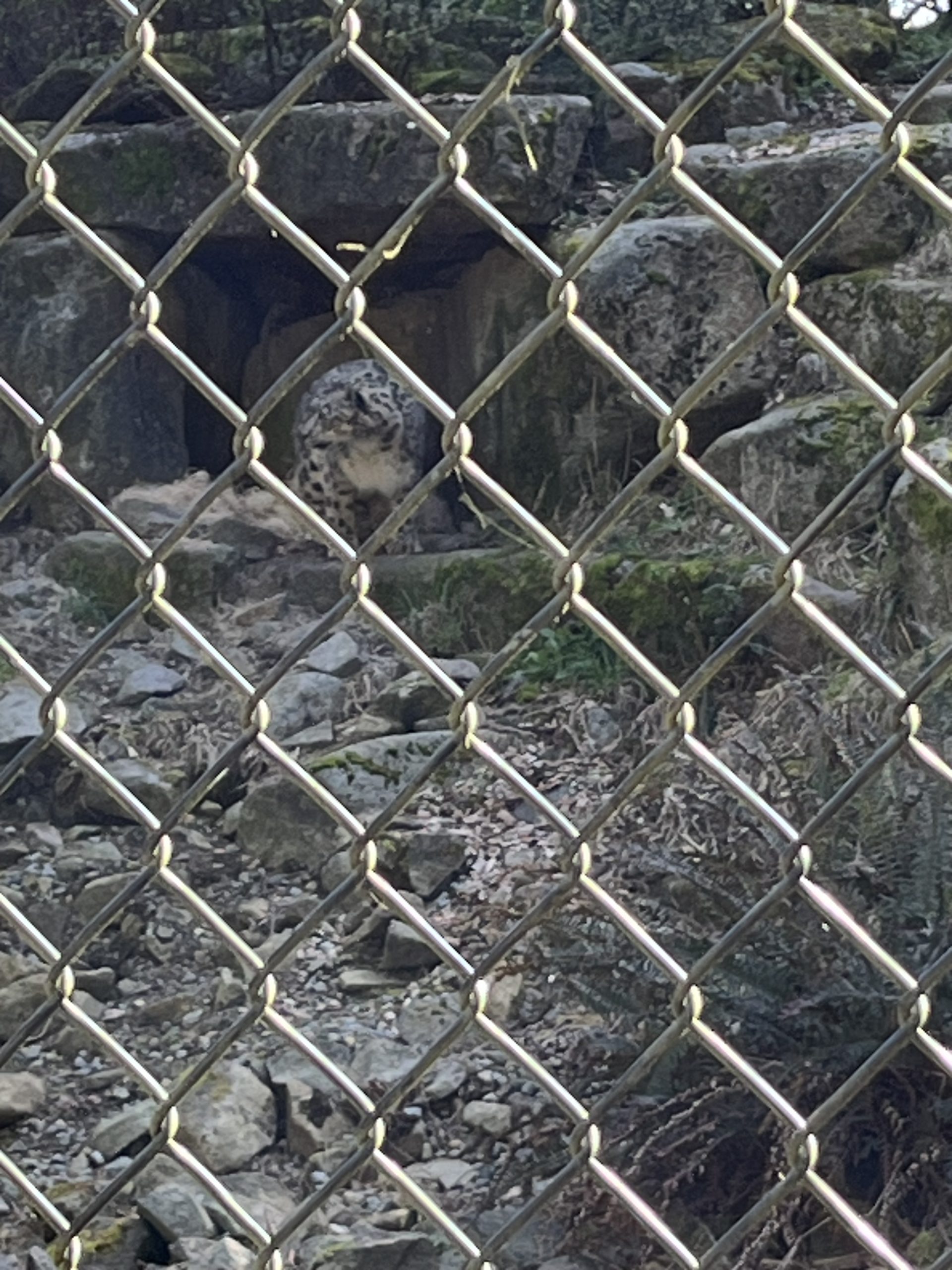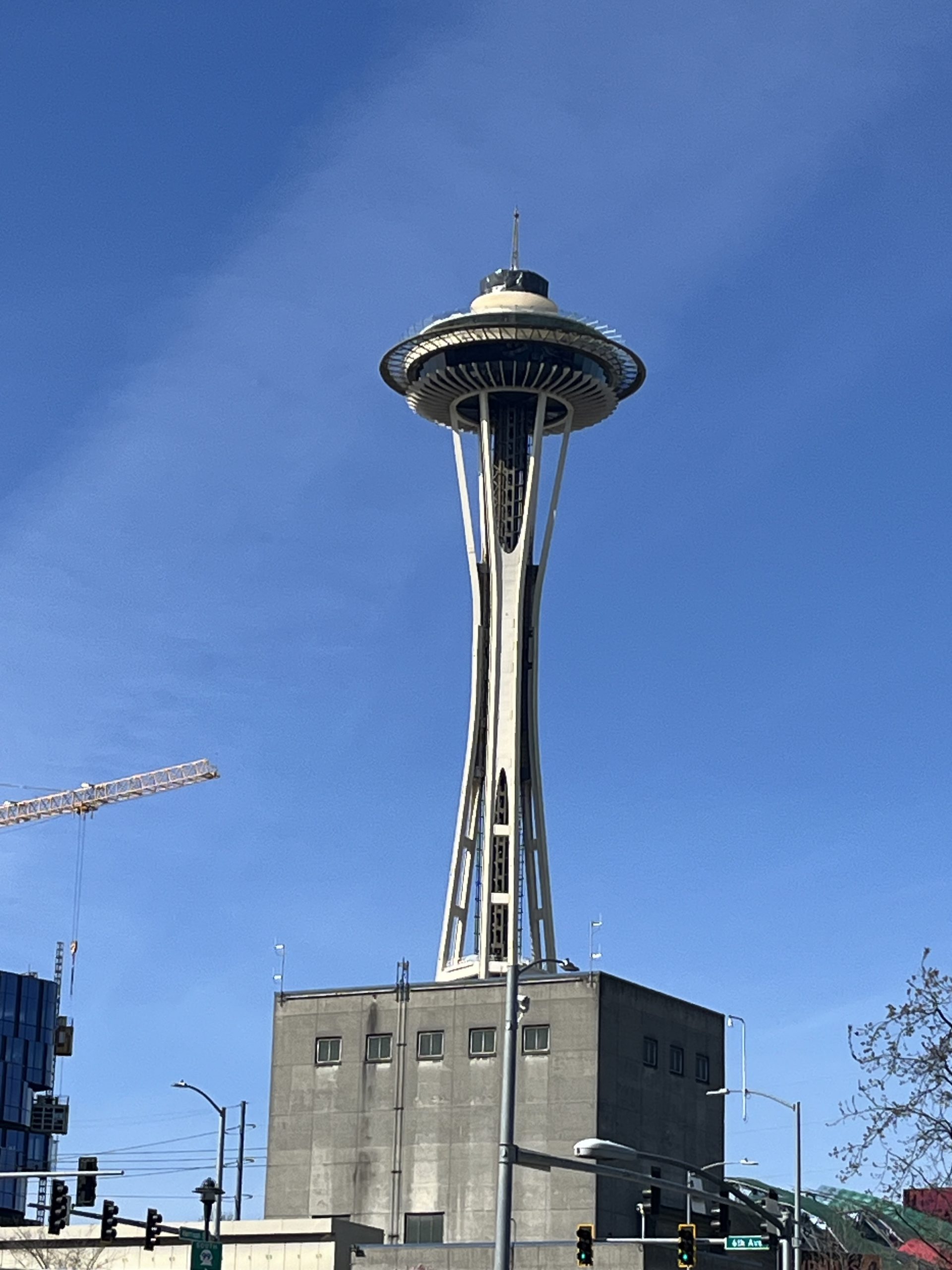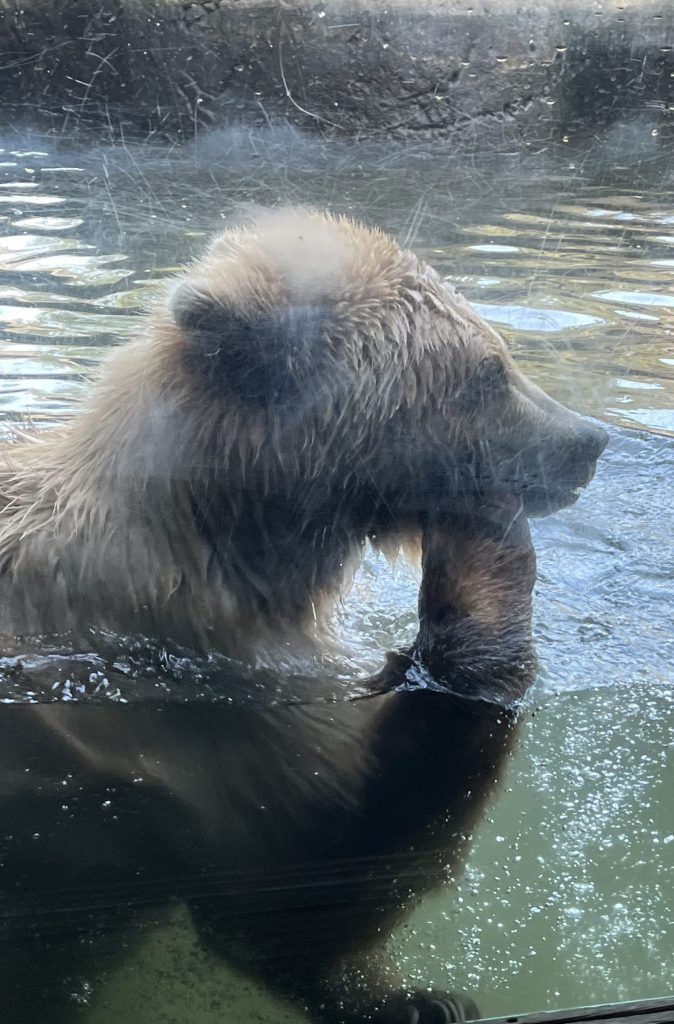 I love nature and have great respect for the environment. Wednesday morning I visited Woodland Park Zoo! On this sunny day in Seattle, the animals were soaking it in as much as I was. This was my first visit to the zoo, which is a 92-acre jewel in the heart of Seattle. I learned there are 250 species at the zoo, and they are averaging 1.2 million visitors each year. I was treated to a tour with President and CEO, Alejandro Grajal, VP of Conservation and Climate, Anji Moraes, and Chief Development Officer, Sarah Valentine.
I love nature and have great respect for the environment. Wednesday morning I visited Woodland Park Zoo! On this sunny day in Seattle, the animals were soaking it in as much as I was. This was my first visit to the zoo, which is a 92-acre jewel in the heart of Seattle. I learned there are 250 species at the zoo, and they are averaging 1.2 million visitors each year. I was treated to a tour with President and CEO, Alejandro Grajal, VP of Conservation and Climate, Anji Moraes, and Chief Development Officer, Sarah Valentine.
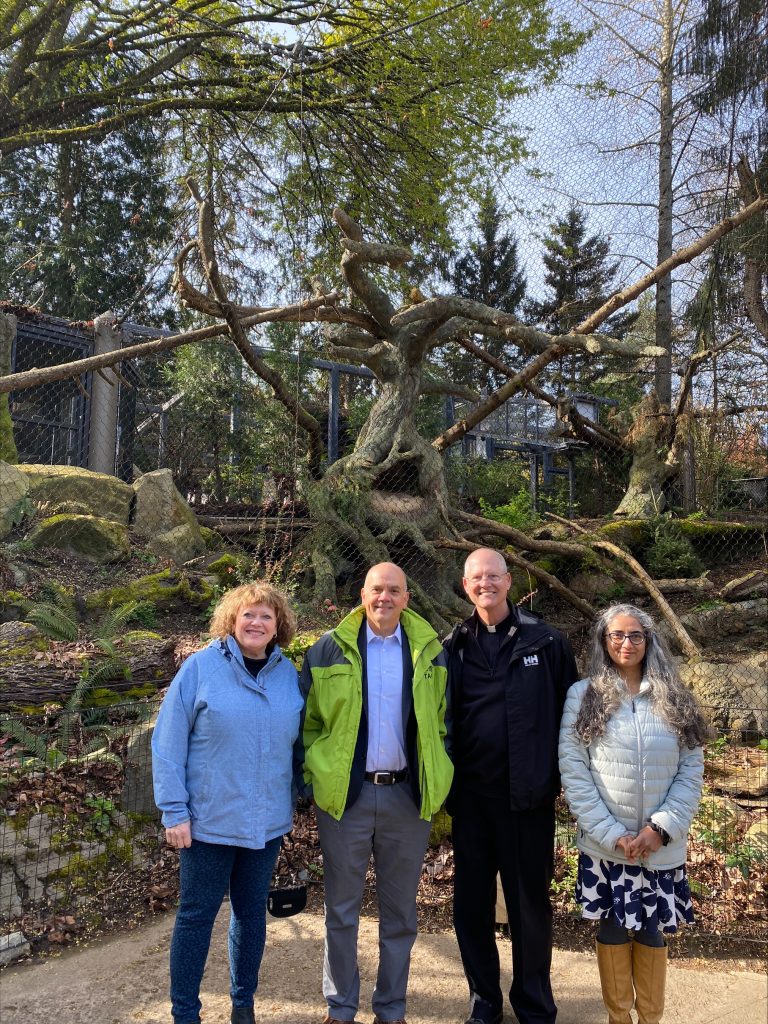
Our tour began before the zoo opened, around 8:45. Many animals are more active in the morning and evening, so this was a great time to get a behind the scenes look. Many of the birds and animals we saw face shrinking habitats in their native environments, which is a threat to their survival as a species.
We visited the Living Northwest Trail, and I got an up-close and personal introduction to the glorious Canada lynx named Marty. Like many plants and animals, the lynx is a climate indicator. Lynx rely on healthy forests and plentiful snowpack to hunt their prey. Climate change is reducing snowfall and more frequent wildfires are burning habitat in Pacific Northwest, making lynx and their prey more and more rare. Marty the lynx is an impressive creature with large paws, a healthy appetite, and a great personality.
On the tour I learned that Woodland Park Zoo is a trail blazer for empathy building through animal connections. Knowing the animals’ name, their characteristics, and personality traits all support empathy building techniques. As stated by Alejandro, “Empathy is a powerful emotion that drives our connection with those around us. As a skill that people are born with, empathy can be developed, strengthened, and reinforced throughout our lives. Empathy is also an important driver for positive social change and motivates people to take caring action towards animals and nature.”
Pope Francis asks us, in the name of God, to defend all of God’s creation. He says, “we need a conversation which includes everyone, since the environmental challenge we are undergoing, and its human roots, concern and affect us all.”
My experience at Woodland Park Zoo opened my eyes to the importance of empathy and how it can start a conversation and ultimately helps us become better stewards of creation. Empathy can serve to promote the kind of ecological conversion called for by Pope Francis.
I’m impressed that Woodland Park Zoo has a strong commitment to conservation. Many species of animals today face diminishing habitat which threatens their existence. Most of this threat comes from human activity such as mining, logging or development. It is important for all of humanity to recognize that we need each other and everything that the Creator gives for our healthy existence as well as the well-being of our common home. Throughout his pontificate, Pope Francis has made many statements along these lines:
Together with our obligation to use the earth’s goods responsibly, we are called to recognize that other living beings have a value of their own in God’s eyes
Laudato Si, #69
To recognize, in other words, that human life is incomprehensible and unsustainable without other creatures. For “as part of the universe … all of us are linked by unseen bonds and together form a kind of universal family, a sublime communion wihich fills us with a sacred, affectionate and humble respect.” (LS #89)
Laudate Deum, # 67
I hope you take the opportunity to visit Woodland Park Zoo as well as taking time to learn more about Pope Francis’ strong call and instruction for all people to better cultivate and protect our environment. Spending time in nature is a great place to start to allow our hearts to be more and more attracted to the beauty of all God has created, and to grow in one’s commitment to walk this earth with greater respect and care for all of God’s creation.
10
